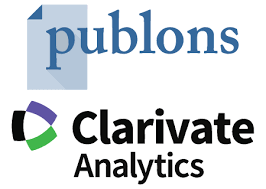Codes of conduct for the CSR practice
Analysis of the Algerian SONATRACH company code of conduct
DOI:
https://doi.org/10.59051/joaf.v12i1.444Keywords:
corporate social responsibility - codes of conduct - ethics - SONATRACH - AlgeriaAbstract
Objectives: demonstrate the Algerian company SONATRACH's commitment to CSR through the development of its code of conduct.
Originality / relevance: The issue addressed in this article is very relevant since it addresses a recent subject which is CSR and its practice through codes of conduct. These two subjects are not the subject of much scientific production in Algeria. As a result, the article provides interesting content and analysis contributing to the advancement of scientific knowledge.
Contributions: the study made it possible to conclude that the SONATRACH code of conduct corresponds to an internal regulation relating to the question of ethics, which on the subject of this one, it is satisfied to translate at the scale of the company the Algerian regulations.
Methodological contributions: This article contains the result of an in-depth analysis of the content of the SONATRACH code of conduct. The approach adopted consisted, first, in developing an analysis grid comprising a certain number of criteria, and then, carrying out an objective study of the code of conduct to arrive at results that take these criteria.
Downloads
References
Berger-Douce, S. (2008). Rentabilité et pratiques de RSE en milieu PME. Premiers résultats d'une étude française. Revue Management et avenir(15), pp. 9-29.
Bernoux, P. (2005). La théorie de la régulation sociale de Jean-Daniel Reynaud. Sociologie du travail, 47(2), pp. 277-279.
Bodet, C., & Lamarche, T. (2013). La RSE contribue-t-elle au développement durable ? de la production des règles par les acteurs à une hypothétique montée en régime. Bobiny, Paris, France: Colloque EAEPE.
Capron, M., & Petit, P. (2011, 1er semestre ). RSE et diversité des capitalismes dans la phase contemporaine d'internalisation. Revue de la régulation : capitalisme, institutions et pouvoirs(9). Consulté le septembre 03, 2018, sur https//regulation.revues.org
Capron, M., & Quairel, F. (2001). Les dynamiques relationnelles entre les firmes et les parties prenantes. laboratoire de recherche GREGOR. Paris: IAE Paris.
De Tessac, G. (2012). La théorie de la régulation sociale : repères introductifs. Revue interventions économiques(45).
Dejean, F., & Gond, J. (2004). La responsabilité sociétale des entreprises : enjeux stratégiques et méthodologies de recherche. Revue Finance Contrôle Stratégie, 7(1), pp. 5-31.
Desbarats, I. (2003). Codes de conduite et chartes éthiques des entreprises privées, regard sur une pratique en expansion. La semaine juridique(9), pp. 337-343.
Donnadieu , G., & Layole , G. (1995). Essai d'interprétation systémique de la régulation sociale dans une organisation. Les papiers de la recherche GREGOR. Consulté le août 15, 2018, sur http://www.univ-paris1.fr/GREGOR/
Dornier, R., & Autres. (2010). L'éthique des comportements concurrentiels : une approche perceptuelle. Management & avenir, 3(33), pp. 425-442.
Essid, M. (2009). Les mécanismes de contrôle de la performance globale : le cas des indicateurs non financiers de la RSE. Paris, Frnce.
Férone , G., & autres. (2001). Le développement durable : enjeux stratégiques pour l'entreprise. Paris, France: Editions d'Organisations.
Gélinier, O., & autres. (2005). Développement durable : pour une entreprise compétitive et responsable. Paris, France: ESF Editeur.
Gendron, C. (2006). Codes d'éthique et nouveaux mouvements sociaux économiques : la constitution d'un nouvel ordre de régulation à l'ère de la mondialisat. Les cahiers de la chaire-collection recherche.
Huet , R. (2006). Régulation sociale et communication des entreprises . Les enjeux de l'information et de la communication, 2006(1), pp. 33-42.
Klarsfeld, A., & Delpuech, C. (2008). La RSE au-delà de l'opposition entre volontarisme et contrainte : l'apport de la théorie de la régulation sociale et de la théorie néo-institutionnelle. Revue de l'organisation responsable, 3(1), pp. 5"-64.
Mercier , S., & Gond, J. (2004). Les théories des parties prenantes : une synthèse critique de la littérature. Conférence de l'association de gestion des ressources humaines , pp. 1-21.
Peeters , A. (2004). La RSE. Courrier hebdomadaire du CRISP, 2006(1), 1-47.
Peirera , B. (2009). Chartes et codes de conduite : le paradoxe éthique. Management & avenir, 21(1), pp. 26-43.
Reich, S. (2005). Les grandes entreprises qui revendiquent un comportement "responsable" obéissent-elles à des considérations nationales et globales ? Revue internationale des sciences sociales, 185(3), pp. 551-571.
Vercher , C. (2011). Codes de conduite et systèmes d'alerte éthique. Revue de la régulation, pp. 1-44.
Downloads
Published
How to Cite
Issue
Section
License
Copyright (c) 2021 LAIB abderrahmane, SAHRAOUI Rachida

This work is licensed under a Creative Commons Attribution-NonCommercial-NoDerivatives 4.0 International License.
Authors who publish with this journal agree to the following terms:
- Authors retain copyright and grant the journal right of first publication with the work simultaneously licensed under a Creative Commons Attribution License that allows others to share the work with an acknowledgement of the work's authorship and initial publication in this journal.
- Authors are able to enter into separate, additional contractual arrangements for the non-exclusive distribution of the journal's published version of the work (e.g., post it to an institutional repository or publish it in a book), with an acknowledgement of its initial publication in this journal.
- Authors are permitted and encouraged to post their work online (e.g., in institutional repositories or on their website) prior to and during the submission process, as it can lead to productive exchanges, as well as earlier and greater citation of published work (See The Effect of Open Access).






















